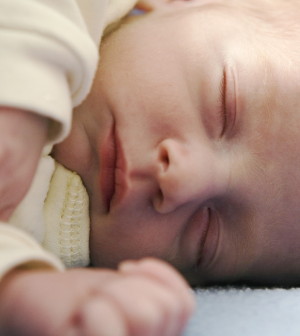- 8 Ways to Increase Dopamine Naturally
- 7 Best Breads for Maintaining Stable Blood Sugar
- Gelatin vs. Collagen: Which is Best for Skin, Nails, and Joints?
- The Long-Term Effects of Daily Turmeric Supplements on Liver Health
- Could Your Grocery Store Meat Be Causing Recurring UTIs?
- Are You Making This Expensive Thermostat Error This Winter?
- Recognizing the Signs of Hypothyroidism
- 10 Strategies to Overcome Insomnia
- Could Artificial Sweeteners Be Aging the Brain Faster?
- Techniques for Soothing Your Nervous System
Breast-Feeding Might Reduce Moms’ Odds of Rheumatoid Arthritis


Women who breast-feed may have a lower risk of developing rheumatoid arthritis later in life, new research suggests.
Researchers analyzed data from more than 7,300 women, aged 50 and older, in China who completed questionnaires that asked about their health and lifestyle, including whether they breast-fed or used birth control pills.
Most of the women had at least one child, and more than 95 percent of those with children had breast-fed for at least a month. Only 11 percent used birth control pills, and mostly for only a short time. The average age for their first pregnancy was 24, and the average age at diagnosis of rheumatoid arthritis was just shy of 48.
Women who breast-fed were about half as likely to develop rheumatoid arthritis as those who never breast-fed. And the longer a woman breast-fed, the lower her risk of developing rheumatoid arthritis, according to the study, which was published online Jan. 6 in the journal Rheumatology.
While the study found an association between breast-feeding and a lowered risk of rheumatoid arthritis later in life, it did not establish a cause-and-effect link.
Rheumatoid arthritis is a painful form of arthritis that causes swelling, stiffness and loss of function in the joints. It affects women more than men, and some people have the disease for a lifetime. The exact cause of rheumatoid arthritis is unknown, but genetic, environmental and hormonal factors are thought to play a role.
“Replication of the association between breast-feeding and lower risk of [rheumatoid arthritis] in a different population reinforces the need for further research to understand the hormonal mechanisms involved,” the researchers wrote in a journal news release.
The researchers found no association between the use of birth control pills, which are hormone-based, and the risk of rheumatoid arthritis.
In China, breast-feeding is common practice and more widespread than in many Western nations, the researchers said. They said their findings have potentially important implications for future rates of rheumatoid arthritis among women in China.
“Women who took part in this study were born in the 1940s and 1950s, before China’s one-child policy was introduced in the late 1970s, and at a time when breast-feeding was more prevalent,” the researchers wrote. “The consequent decline in breast-feeding supports the need for prospective studies to examine whether there will be a higher incidence of [rheumatoid arthritis] in the future.”
More information
The American Academy of Family Physicians has more about rheumatoid arthritis.
Source: HealthDay
Copyright © 2026 HealthDay. All rights reserved.










